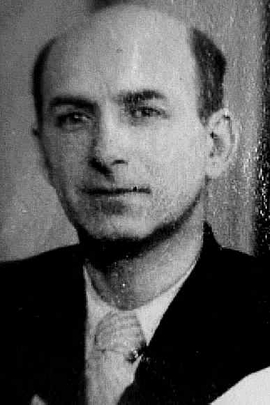Ramm Boris (1902–1989) – historian medievalist, specialist in the history of Catholicism.
He was born in the town of Starodub (Chernigov Region); in 1920, he graduated from the Historical Faculty of the Leningrad State University. In 1924-1937, he was lecturer in the Department of the Mass Work of Lensovet. In 1931-1933, he was Docent of Volodarsky Institute of Propaganda in Leningrad. In 1937-1939, he taught at the Chair of the World History of the Voronezh State Teachers-Training Institute. In 1938, he defended his Candidate thesis in History at the Leningrad State University; his work was ‘Laic and Ecclesiastic Elements in the Culture of the Early Middle Ages’.
From October 1939 till March 1942, he was Docent of the Chair of the History of Middle Ages, Head of the Chair, Dean of the Historical Faculty of the Leningrad M. N. Pokrovsky State Teachers-Training Institute. In 1942-1943, he was in evacuation in Kirov (Vyatka); there he was Docent of the Kirov State Teachers-Training Institute, lecturer and Director of the Regional Lectorium. Since 1943, he was Docent, and in 1944-1947 – Dean of the Historical Faculty of the correspondence department of the Leningrad A. I. Herzen State Teachers-Training Institute. In 1944-1949, he also taught at the Historical Faculty of the Leningrad State University. He made lectures on: ‘Medieval History’, ‘The Ways of evolution of the laic education in the Medieval Western Europe’. In 1950-1964, he was Researcher of the Museum of the History of Religion of the Ac. of Sc. of the U.S.S.R. In 1964, he became Doctor in History; his thesis was ‘The Papacy and Rus’ in the Eleventh – Fifteenth Centuries’. In 1964-1973, he was Professor of the Chair of Marxist-Leninist Atheism of the Leningrad A. I. Herzen State Teachers-Training Institute. In 1973, he returned to the Museum of the History of Religion, where he worked as Consultant till his death in 1989.
The main sphere of his interest was the history of Catholicism in the Middle Ages. He was the author of works on the history of laic education in the Early Medieval period in the Western Europe, studied the papacy as a special social-political institute.

